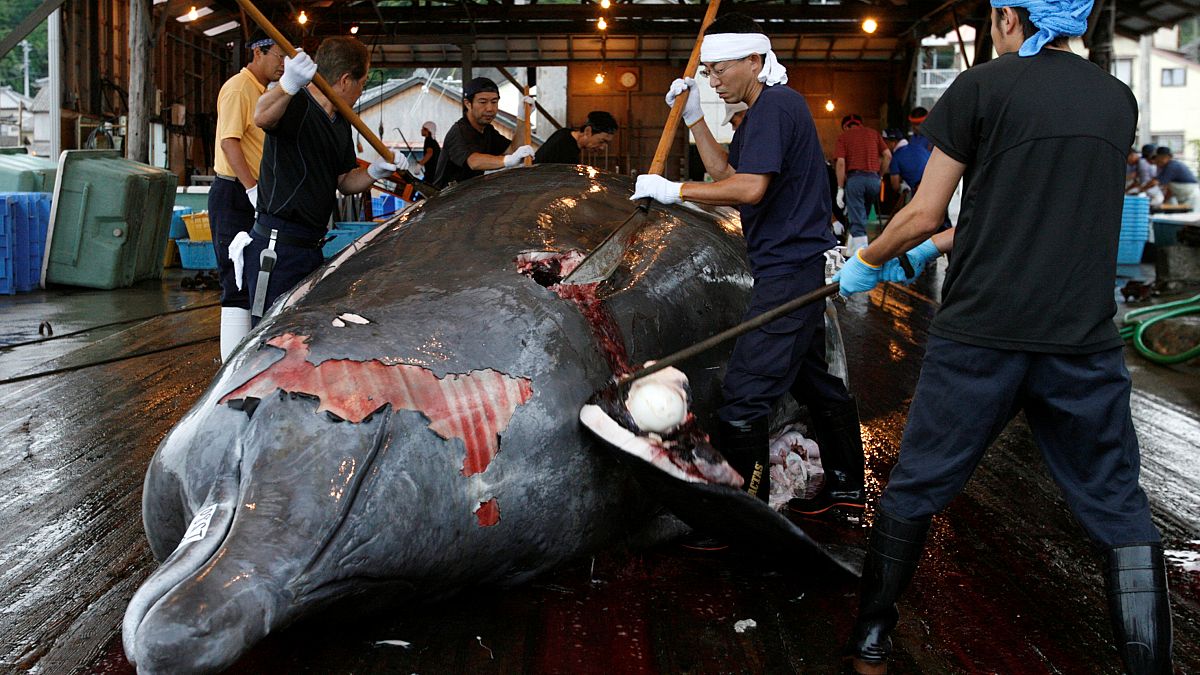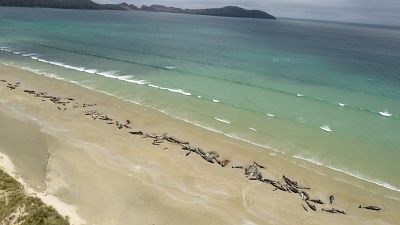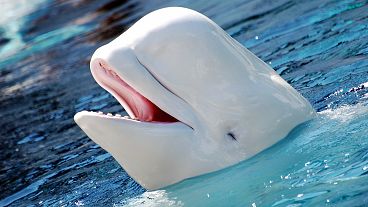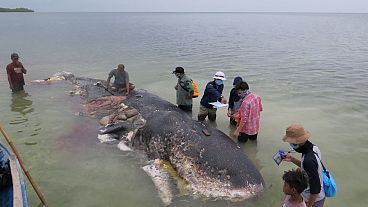The government announced on Wednesday that they would withdraw from the International Whaling Commission and commercial whaling in its territorial waters would resume in July 2019.
Japan is to withdraw from the International Whaling Commission (IWC) and resume commercial hunting in July, the government announced on Wednesday, in a move that has drawn heavy criticism.
Commercial whaling was banned by the IWC in 1986 to protect depleted or endangered whale stocks, but Japan has continued to slaughter whales under "scientific programmes" decried by conservationists as a disguise for commercial operations.
Japan, which argues that eating whale meat is part of its culture, has repeatedly called on the IWC to lift the ban and set quotas for sustainable commercial whaling.
Chief Cabinet Secretary Yoshihide Suga told reporters that the hunts will be limited to Japanese territorial waters and exclusive economic zone, thus scrapping controversial annual expeditions to the Antarctic.
"The whaling will be conducted in accordance with international law and within the catch limits calculated in accordance with the method adopted by the IWC to avoid negative impact on cetacean resources," Suga said.
He added that the country would make the formal announcement to the IWC before the end of the year so the withdrawal comes into effect on June 30, 2019.
Reaction
The Australian government is "extremely disappointed" by the decision, the country's Foreign Minister Marise Payne and Environment Minister Melissa Price, said in a joint statement.
"Their decision to withdraw is regrettable and Australia urges Japan to return to the Convention (for the Regulation of Whaling) and Commission as a matter of priority," they added.
They did, however, welcome Japan's announcement that it would only hunt whales in its territorial waters and the country's commitment to remain in the IWC as an observer.
Environment protection NGO Greenpeace condemned the move in a statement.
"It's clear that the government is trying to sneak in this announcement at the end of the year, away from the spotlight of international media, but the world sees this for what it is," Sam Annesley, executive director at Greenpeace Japan, said.
"As a result of modern fleet technology, overfishing in Japanese coastal waters and high seas areas has led to the depletion of many whale species. Most whale populations have not yet recovered, including larger whales such as blue whales, fin whales and sei whales.
"As the chair of the G20 in 2019, the Japanese government needs to recommit to the IWC and prioritise new measures for marine conservation," he added.
What's the IWC?
The IWC was set up following the ratification of the International Convention for the Regulation of Whaling in 1946. The convention's aim is to provide for the proper conservation of whale stocks.
A moratorium, which passed in 1982 and came into force in 1986, banned all commercial whaling. But hunting was allowed in a few exceptions, including for aboriginal subsistence whalers and scientific purposes.
Several nations then lodged formal objections, so the moratorium would not apply to them and soon after, Iceland, Norway and Japan launched so-called "scientific whaling programmes."
Norway was the first to return to commercial whaling in 1993, following by Iceland in 2006.
Icelandic authorities set a quota of 191 fin whales this year ahead of its hunting season, which opened on June 10. Norway's annual quota for minke whales hovers around 1,000 but is rarely met.



